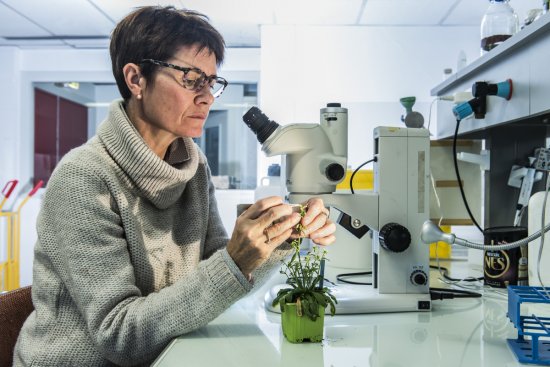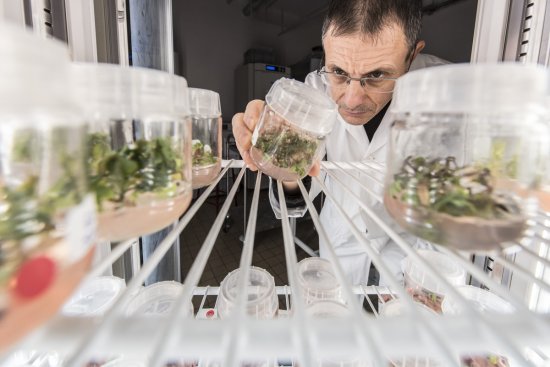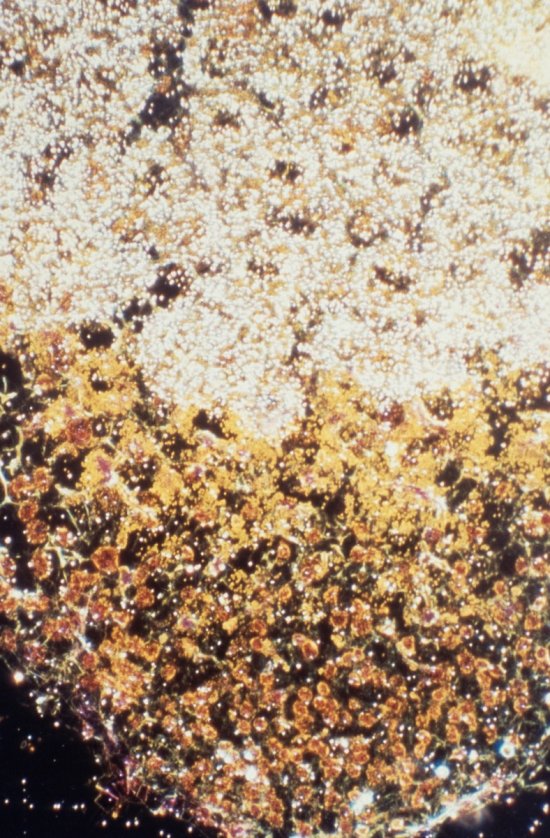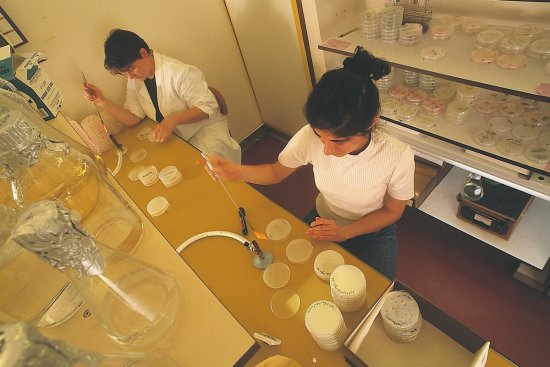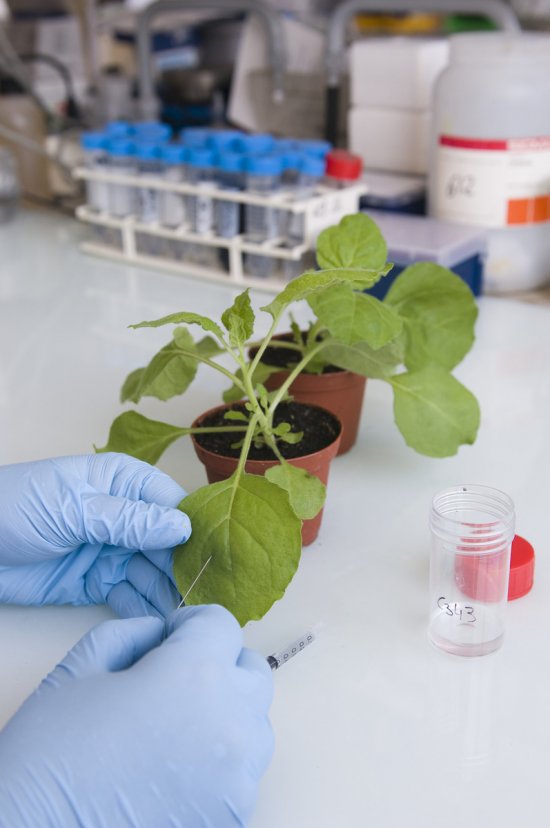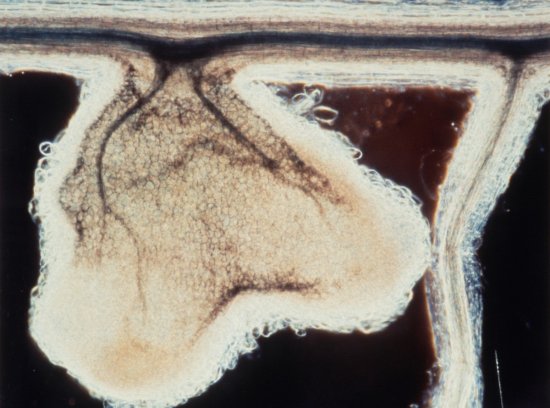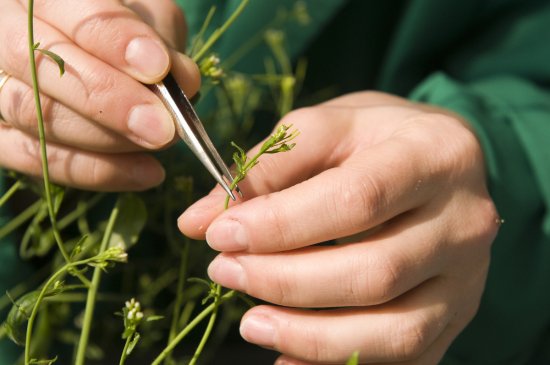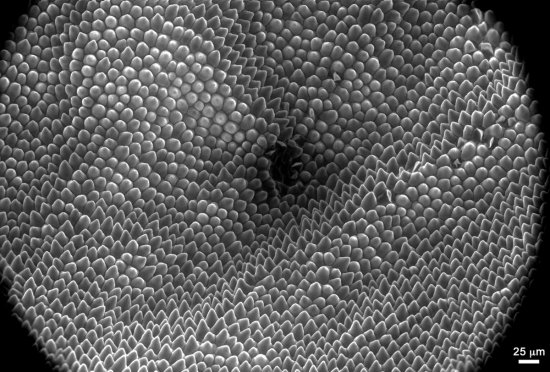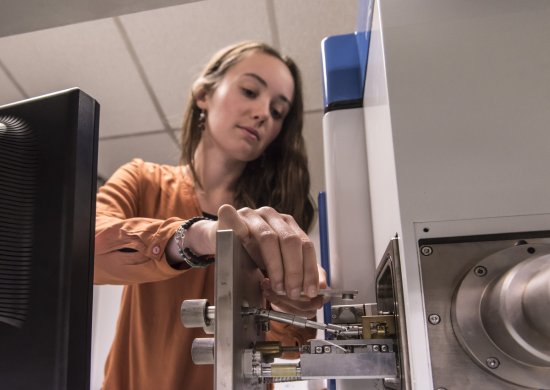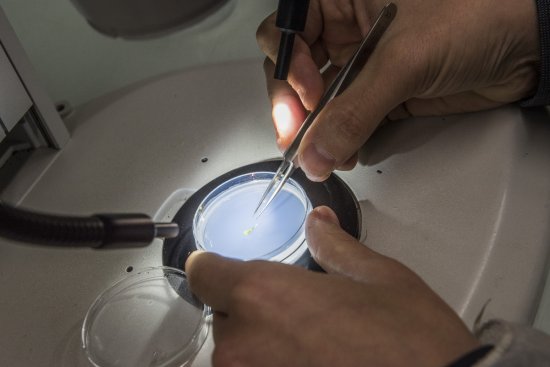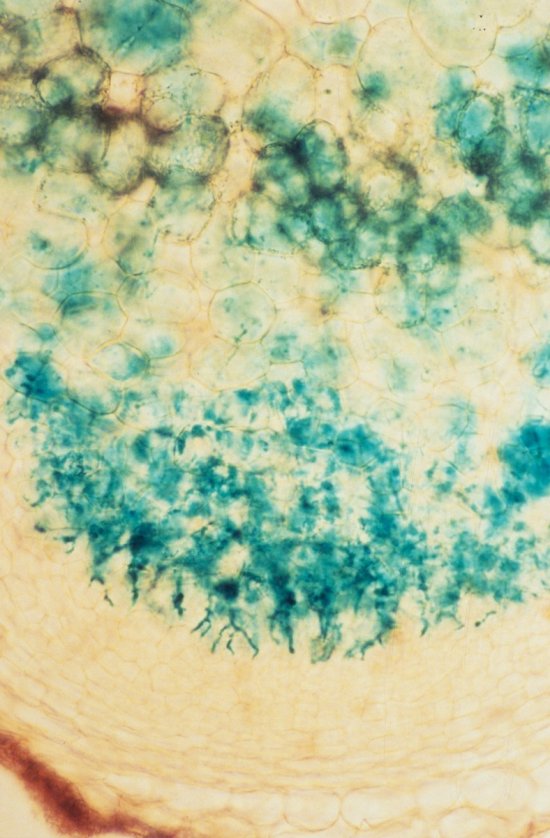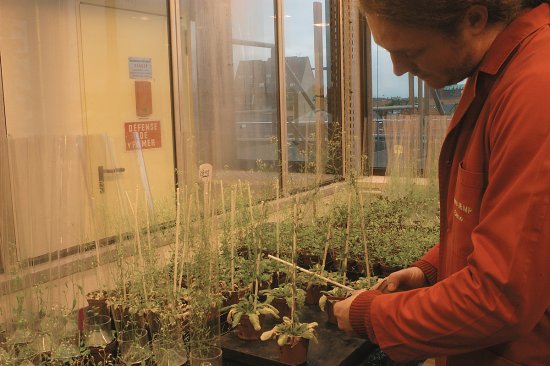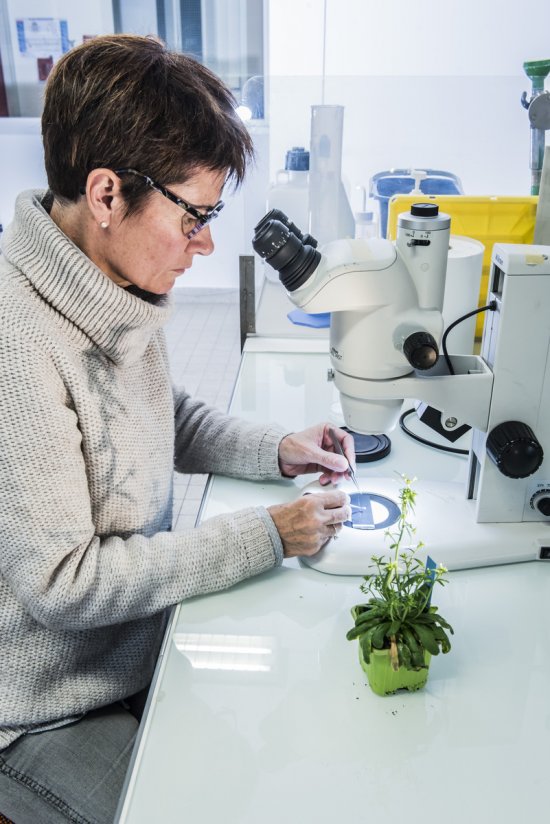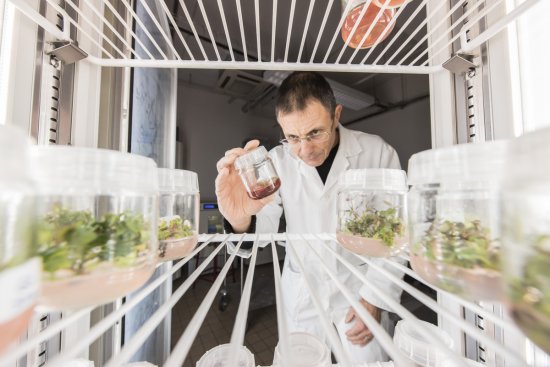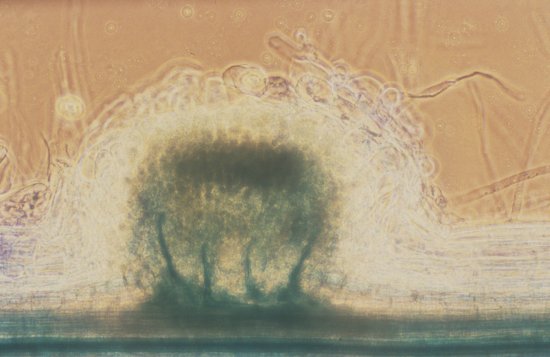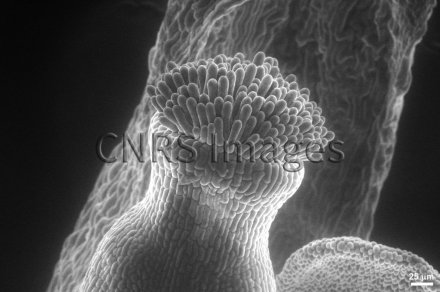
© Véronique HUGOUVIEUX / Christine LANCELON-PIN / LPCV / CERMAV / ICMG / CNRS Images
Reference
20170098_0003
Haut du carpel d’une Arabette des dames
Upper part of the carpel on thale cress (arabidopsis thaliana), observed using scanning electron microscopy at partial water vapour pressure (ESEM mode). Scientists are studying how certain transcription factors, particularly those in the MADS-box gene family (the MADS-box is a motif common to certain transcription factors, taking its name from the first four factors in which it was identified: MCM1, Agamous, Deficiens and SRF), influence the formation of flower organs (sepals, petals, stamens and the carpel), and specifically their cell surface area, which in some organs is highly specific. To this end, they modify plants by introducing certain factors (which may or may not have been mutated) into a specific regions of the SEPALLATA 3 protein and observing the impact on the plants' development. The researchers analyse wild plants and compare them with plants that express a mutated protection in a specific region.
The use of media visible on the CNRS Images Platform can be granted on request. Any reproduction or representation is forbidden without prior authorization from CNRS Images (except for resources under Creative Commons license).
No modification of an image may be made without the prior consent of CNRS Images.
No use of an image for advertising purposes or distribution to a third party may be made without the prior agreement of CNRS Images.
For more information, please consult our general conditions
